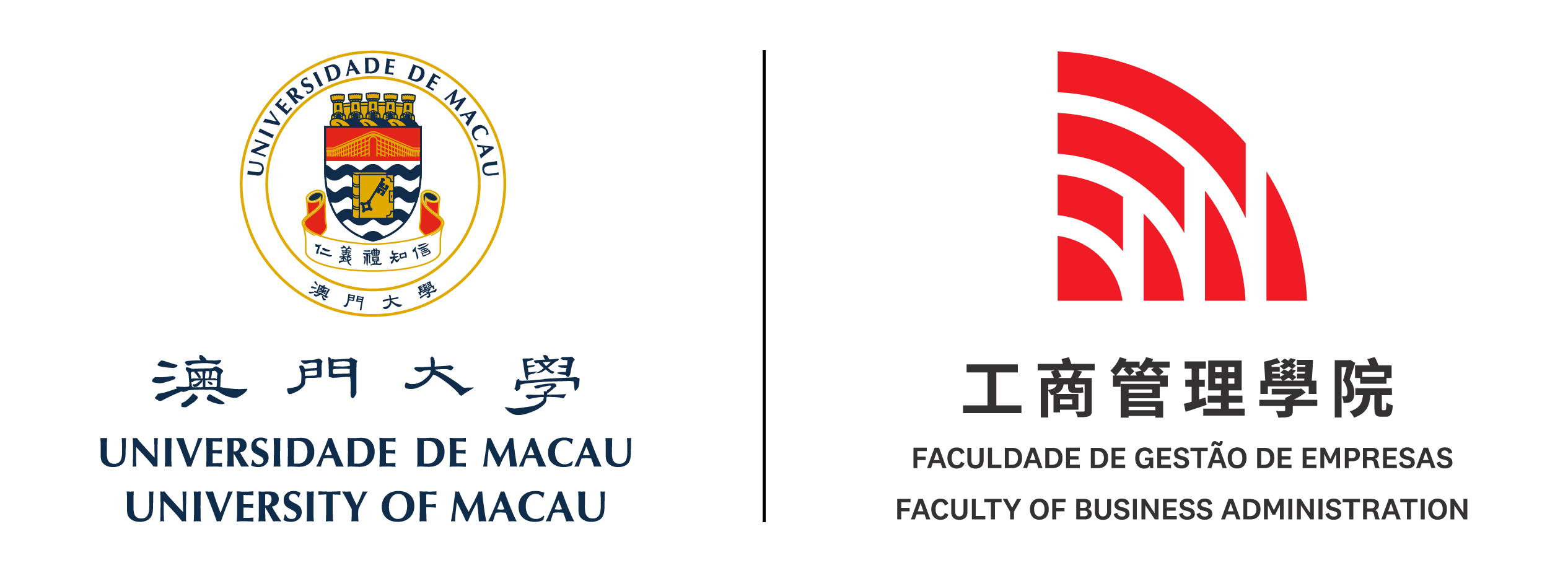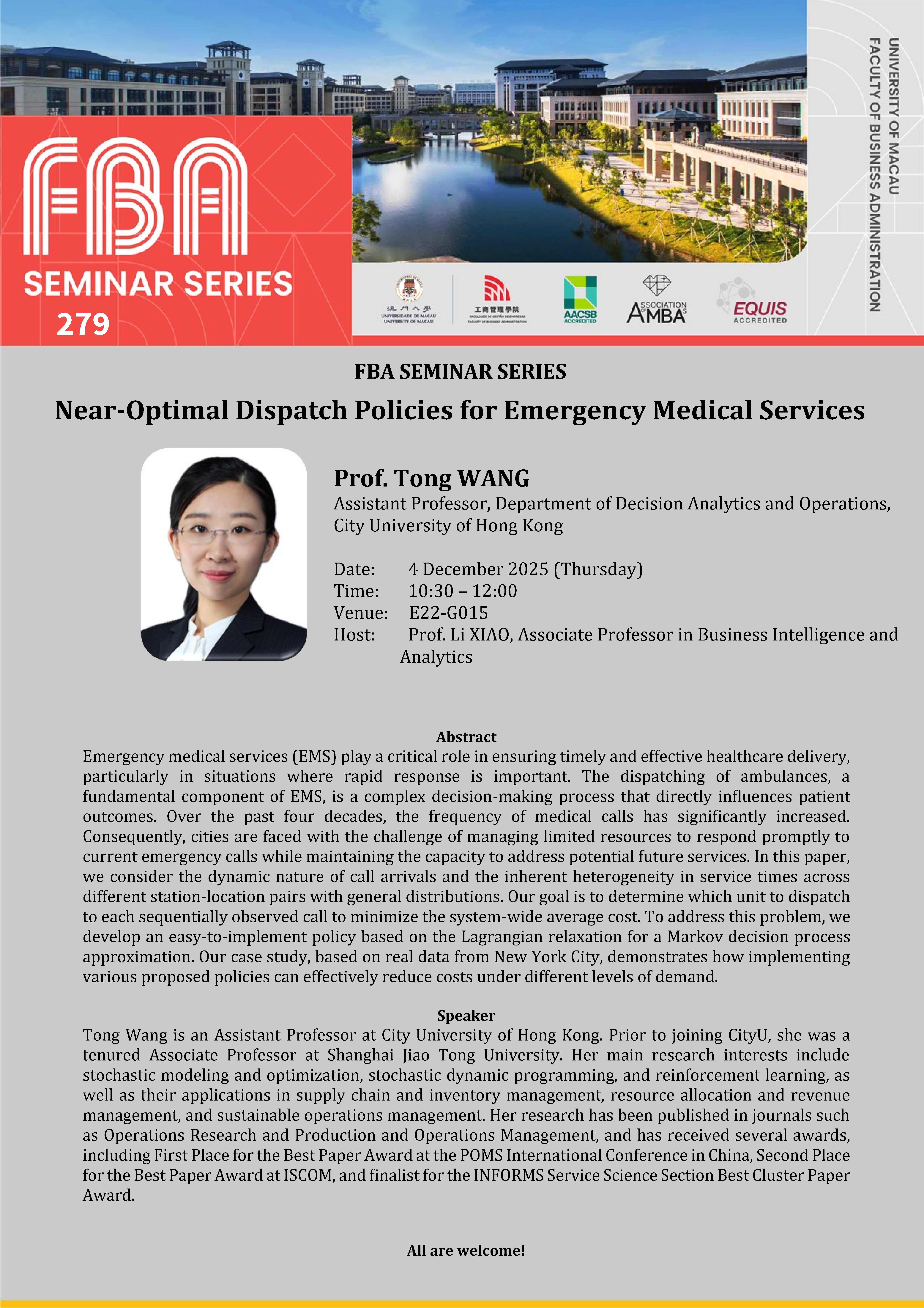Near-Optimal Dispatch Policies for Emergency Medical Services
Prof. Tong WANG
Assistant Professor, Department of Decision Analytics and Operations,
City University of Hong Kong
Date: 4 December 2025 (Thursday)
Time: 10:30-12:00
Venue: E22-G015
Host: Prof. Li XIAO, Associate Professor in Business Intelligence and Analytics
Abstract
Emergency medical services (EMS) play a critical role in ensuring timely and effective healthcare delivery, particularly in situations where rapid response is important. The dispatching of ambulances, a fundamental component of EMS, is a complex decision-making process that directly influences patient outcomes. Over the past four decades, the frequency of medical calls has significantly increased. Consequently, cities are faced with the challenge of managing limited resources to respond promptly to current emergency calls while maintaining the capacity to address potential future services. In this paper, we consider the dynamic nature of call arrivals and the inherent heterogeneity in service times across different station-location pairs with general distributions. Our goal is to determine which unit to dispatch to each sequentially observed call to minimize the system-wide average cost. To address this problem, we develop an easy-to-implement policy based on the Lagrangian relaxation for a Markov decision process approximation. Our case study, based on real data from New York City, demonstrates how implementing various proposed policies can effectively reduce costs under different levels of demand.
Speaker
Tong Wang is an Assistant Professor at City University of Hong Kong. Prior to joining CityU, she was a tenured Associate Professor at Shanghai Jiao Tong University. Her main research interests include stochastic modeling and optimization, stochastic dynamic programming, and reinforcement learning, as well as their applications in supply chain and inventory management, resource allocation and revenue management, and sustainable operations management. Her research has been published in journals such as Operations Research and Production and Operations Management, and has received several awards, including First Place for the Best Paper Award at the POMS International Conference in China, Second Place for the Best Paper Award at ISCOM, and finalist for the INFORMS Service Science Section Best Cluster Paper Award.
All are welcome!


